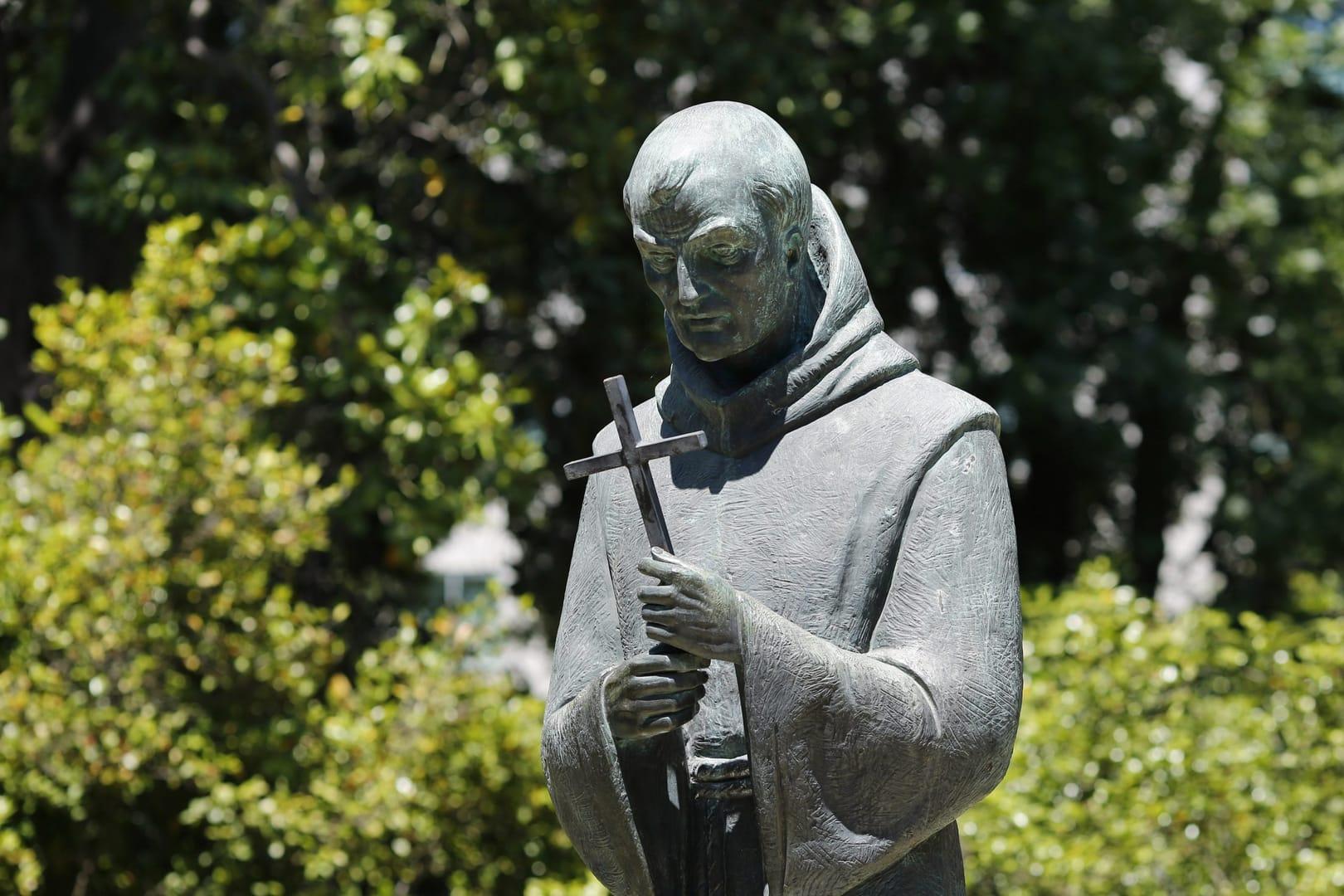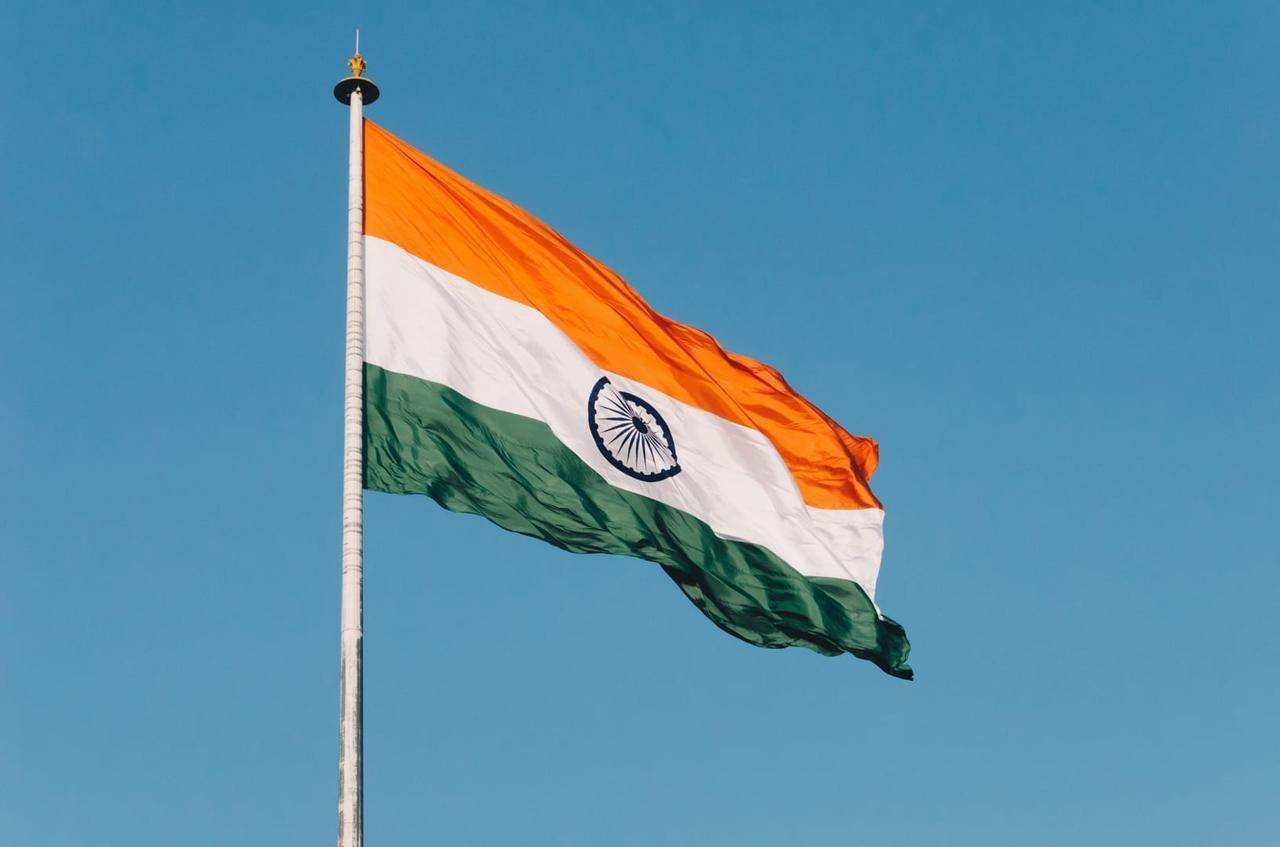MUMBAI, India – India’s top prelate said felt “pained” over the controversy surrounding St. Junipero Serra.
Cardinal Oswald Gracias of Mumbai, the president of India’s bishops’ conference, celebrated Mass on the saint’s feast day on July 1.
Serra was a Spanish missionary active in California, famous for founding nine missions in the then-Spanish territory. In recent years, Indigenous groups have attacked the saint – who died in 1784 – over allegations of maltreatment of the Native Americans at his missions.
Several statues of the saint have been defaced and destroyed in the state, especially in the wake of the Black Lives Matter protests the latter half of 2020.
Speaking to Crux, Gracias noted that Serra was very concerned by the Indigenous people he served.
He was inspired to serve them, at times, even his own superiors could not understand his dedication,” the cardinal said.
“I was very pained as I watched the agitations on television, and the vandalization of this saint’s statues. I felt that these people did not know, nor understood, the work of Serra and the history of the mission. In this they inadvertently distorted history and it is time to make reparation and honor Juniper Serra, as the saint needs to be honored,” he continued.
“I felt his life was so inspiring, dedicated and all of a sudden he became a symbol of anger against those who did not care for the indigenous people,” Gracias said.
Speaking from his own experience in India, Gracias noted that the missionaries are the ones “who care the most for the Indigenous people.”
“I know it and witnessed it personally, when I was Secretary of the Bishop of Jamshedpur in the early 1970s, which is a tribal area. And the same things happened all over the world,” he said.
Jamshedpur is in the state of Jharkhand in eastern India. It has a large Tribal population, who are the indigenous people of India. They exist largely outside of the Hindu caste system, and are marginalized and discriminated against in a way similar to Dalits, who were considered “Untouchable” in the caste system.
“We were only six diocesan priests in the Diocese of Jamshedpur. I was on loan from the archdiocese of Bombay. The rest were Jesuits, and half of the Jesuits were Americans. The Jesuits from the USA loved our indigenous people – the Adivasis – so much. They were so enculturated, even though they did not know the local language, the people understood that these American Jesuits loved them, and worked for their social uplift and empowerment and self-reliance. These American missionaries spoke the language of love,” Gracias remembered.
“These foreign missionaries spent themselves in service of our indigenous people. They were dedicated and focus on the service of the indigenous people. Often this was misunderstood as destabilizing the system. Having seen these foreign missionaries, I understood, how dedicated these foreign missionaries are; their love the indigenous people, they are dedicated in the mission, their priority was the poor people reached out to the tribals in remote areas,” he added.
“I saw in Jamshedpur, how these foreign missionaries encouraged the local culture. They even helped them for the local festivals. These were coming from USA, and coming to these simple places, they had to experience hardships and difficulties, however, I saw the joy and enthusiasm with which they served our Tribal people: Sitting on the floor, eating their food, being one with the indigenous people,” he said.
“It was a great experience, seeing their single-minded devotion to the indigenous people. Our indigenous people understood that these foreign missionaries fired by the love of Jesus Christ, committed their lives to the service their uplift, their rights, their dignity , empowerment and self-reliance,” Gracias continued.
“So when I read about Juniper Serra, I have absolutely no doubt that his priority would have been the same: Working for the indigenous people, helping them serving them,” the cardinal said.
Gracias noted he became more familiar with the saint after finding out about Serra International, which was founded in 1935 to promote vocations to the priesthood and religious life. The clubs work with bishops, dioceses and religious vocation directors to encourage and support vocations, including the perseverance of existing vocations.
“They pray for vocations; they promote vocations; they support seminarians in difficult; they accompany them; they even help them financially, and even later they accompany priests,” the cardinal said.
“Around five years ago [in Thailand], I attended the International meeting of the Serra club and they spoke about the great amount of dedication to get local vocations. My conclusion was that Juniper Serra would have tried to get local vocations as this club is named the Serra club,” he continued, explaining what stirred his interest in the saint.
“I felt he was a missionary who went to the poorest areas and cared for the poorest people. Hence I felt hurt, I felt pained that Juniper Serra wasn’t defended sufficiently, that the truth must be made known,” Gracias told Crux.
















